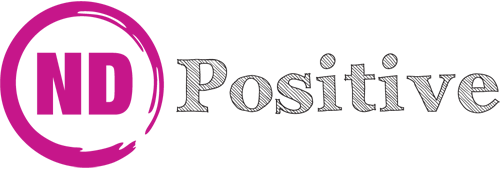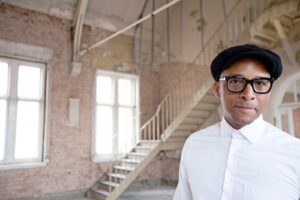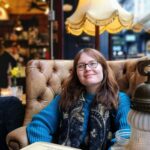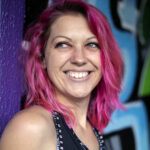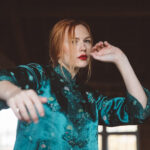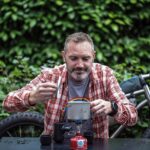 Name: Nick Russill
Name: Nick Russill
ND Type: ADHD
Current Job: Entrepreneur / Photographer / Geoscientist
Where do you live: Cardiff, UK
Photo Credit Alex Lloyd Jenkins
How do you start you day – do you have a morning routine?
I start with a rule. Look at the sky before you look at a screen. I normally do this standing barefoot in the garden in the belief that grounding and taking in light is how we evolved to start our days. Then I drink a pint of water with apple cider vinegar on the advice of my friend Sian. This balances the pH of our bodies and among other things strengthens our immune systems. On weekends, I drive the 20 minutes to the coast to join my cold water swim group “Dawnstalkers” – a practice I’ve stuck to whenever I can for over a year now. School run during weekday with my youngest daughter is a golden time that I treasure for the chats we have and the thought that one day this will be no more.
I do have a meditation practice but often stress that I don’t have time to fit this in. Then I realise that a mindful moment or a pause is still hugely valuable.
What do you have for breakfast, and do think your diet is important?
I used to have a green smoothie but due to lack of time, I’m locked into a subscription to Athletic Greens that gives us pretty much all we need. I’m not big on eating a lot at breakfast so may have a banana and savour the ritual of making a Swiss water decaf coffee with my Aeropress. I 100% agree that a healthy gut is critical, but also recognise that it requires a lot of willpower and keeping up good habits to stick to it, especially when you’re feeling down or tired.
Do you exercise regularly, how do you stay active?
Yes. I spend most of my time on the move and as much time as possible outdoors. A year ago we got a crazy Sprocker Spaniel puppy which has been a wonderful catalyst to getting out in nature and keeping the daily step count well over 10k! I’ve trained her to run next to me on the bike which is working well, with a couple of exceptions involving birds or discarded burgers… Aside from the dog, I run, swim, ride, snowboard, surf and recently discovered closing down that last mile of a commute on an electric skateboard is great fun, saves fuel and parking fines.
What do you do to relax?
I nearly always have a camera with me and find photography (taking and editing) incredibly calming and a great way of being present. For my 50th birthday I bought a 50 year old Lotus Elan +2 and relax on sunny evenings with a cruise to the coast or into the hills. I find choosing good films or documentaries very taxing, but if I get into something I find that relaxing too.
Have you read anything good recently?
I’m afraid I struggle with books due to being on the go most of the time, falling asleep with them at the end of the day, or not being able to focus. Consequently, I always ask for an Audible subscription for Christmas. My top recent “listens” would be:
The Rise of Superman by Steven Kotler – all about extreme sports and flow states. Finding flow is the key to productivity and work satisfaction. And Away… Bob Mortimer’s autobiography – a wonderful, warm and surprisingly introspective look at the great man with lots of laugh out loud moments. A great example of how to structure a story (he uses the example of his heart bypass surgery).
Prisoners of Geography by Tim Marshall – with the current crisis in Ukraine, now is as important time as there has ever been to get reminded of the importance of geography on global politics. The first chapter on Russia is uncannily precognitive. The Storyteller by Dave Grohl – possibly the nicest guy in the Universe.
What music do you listen to?
I always struggle when I’m asked this question. BBC 6 Music is my station of choice in the car, and with the help of Shazam and then Spotify radio I go down some wonderful rabbit holes of discovering new artists. I’d say my taste is very diverse: Pink Floyd, Gerry Rafferty, The Beatles, Imagine Dragons, Foo Fighters, AC/DC, Genesis, The Naked And Famous, Public Service Broadcasting, The Chemical Brothers… really it depends on my mood and where I am. Sometimes I find I have no music in me and am content with silence. That’s not a bad thing is it?
Who is the person you value most in your life and why?
My dad. He has been an unerring source of inspiration and strength throughout my life. I don’t think we’ve ever had a really crossed word and I can’t remember hearing him complain about anything.
When you were young, what did you want to be when you were a grown-up?
A vet. Then I did some work experience with a family friend in Cardigan, West Wales. Being present with the distraught owner when a dog was put to sleep, (and the overpowering smell when it emptied its bowels) was enough to put me off.
What was your first Job?
Aged 10, I converted some outbuildings on the farm we lived at in Hampshire into a dog boarding kennel for people in the village. I still have the visitor log book with many pages containing a bold black X for troublemakers. A large percentage of my profits went on appeasing the neighbours with boxes of After Eight mints for all the barking. My first adult job was in the Australian Outback doing gold exploration for a large mine.
What do you do now and how did you get into this job?
I lost my job in Australia when the gold price crashed. That led me to return to Wales and with a friend from university set up a mapping company that used similar techniques (“geophys” for fans of Time Team) to locate buried targets for the engineering and environmental industries. We can non-invasively locate anything from mine shafts, landfills, contamination plumes through to bedrock, caves or things that should not have been buried. This company (TerraDat) has been going almost 30 years and employs over 20 wonderful geoscientists. I also co-founded a bunch of websites that help outdoor sports enthusiasts find the best snow/surf conditions. They are called Snow-Forecast.com and Surf-Forecast.com and went from a side project for our own use to serving a global audience of over 60 million users each year. It’s been a real treat to surf the wave of the internet revolution and turn it into a way that allows us to go to amazing places in the guise of work. I also spend one day a week funded by The Royal Society at Exeter University and “Entrepreneur in Residence” in the
School of Engineering. I love sharing knowledge and working with inspiring, energetic students.
Creativity and thinking differently are often credited to neurodiversity. Would you say that is true? And if yes, could you give an example please?
Totally agree. From my own experience, one example would be spotting talent in individuals and bringing them together into a team or network to produce amazing results. I used to worry that I was writing myself out of a role, but accepting that being a catalyst for change / workflows is enough means I can focus on what I’m best at. Quite often those individuals are from different background or disciplines and it’s a real joy to see how they fuse together to produce innovative results. Look at our websites – we’re geophysicists who like snow and surf. Combining map making skills with climate/ocean data led to a whole new business.
Do you have any hacks, tips or do you use any apps to keep you on track during the day?
I’ve tried many and forgotten even more. I can share a few things I do regularly(ish) that keep me on track:
– work standing and sitting
– Meetings on the move (or on a board)
– Finding beauty in short, well-crafted communications
– 20 minute breaks away from the screen (helped by the MOVE prompt on my Garmin watch)
– Get outside for a ride/walk run (and let the creativity flow)
– The “moments” part of Sam Harris’ Waking Up app
– Discriminate between time for work and time to chat to people. (Trying to juggle both at the same time just leads to grumpy moods and poor quality work).
What does living a neurodivergent life mean to you? What is your message to those who are newly diagnosed and to the rest of the world?
Sorry if this has been said before, but celebrate your superpowers. Share your diagnosis with those who matter, but realise that it’s in nobody’s interest to tell everyone. Move away from tasks you struggle with or find infuriating and embrace those that you can fly at with hyper focus and
superlative attention to detail. Accept that life can’t be all highs and sometimes the lows will be very low and there seems no way out. Find strength from little things that can make a big difference.
I have a good friend who regularly tells me to be kind to myself. That’s a good foundation for leading a good neuro (or non-neuro) divergent life.
The final question – where can people find out more about you? Do you have a website and social media pages? Please list them all.
IG: @nick.russill
Twitter: @nickruss
www.nickrussill.com
https://linktr.ee/nick.russill
https://www.linkedin.com/in/nickrussill/
